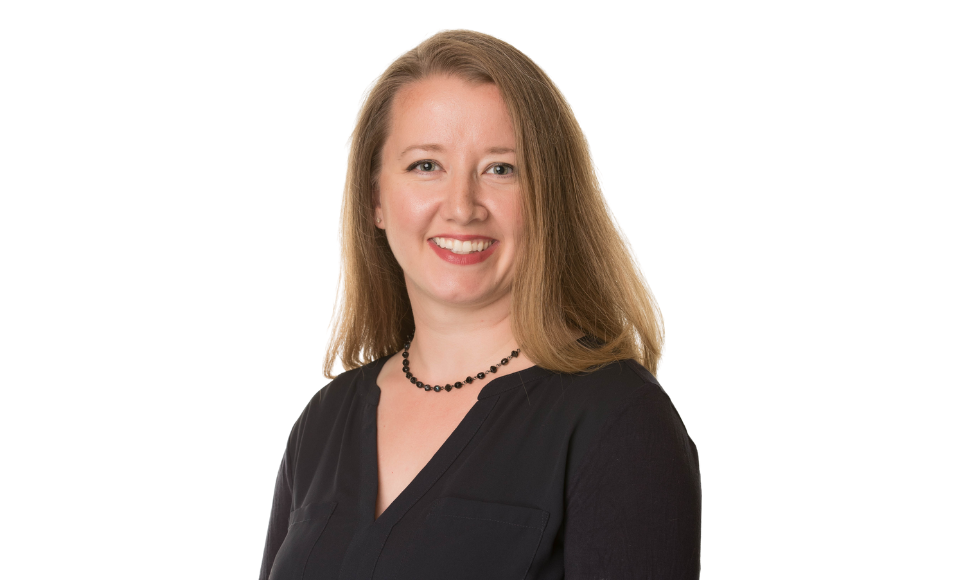Grant partnership to support research to help students learn and work across disciplines

Kelsey Harvey is a postdoctoral fellow at the MacPherson Institute and the primary investigator on a new project working to determine how to better prepare students for the real-world work environment that’s being carried out in partnership with Canadore College.
McMaster University and Canadore College are partnering on a new project to better prepare students for the real-world work environment.
Funded by a Social Sciences and Humanities Research Council (SSHRC) Partnership Development Grant, the project will explore interprofessional health and social services education with attention to the experiences of students and professionals who mentor student educational placements, as well as the emerging practices used by educators.
Through the project, which netted nearly $200,000 in funding, researchers will examine the current state of interprofessional education within Canada and internationally and provide recommendations to improve the student experience.
We had a chance to talk with Kelsey Harvey, the primary investigator on the research grant and postdoctoral fellow at the MacPherson Institute, to learn more about the impact this project will have at McMaster and beyond.
Why is interprofessional education (IPE) important to the student experience?
When students graduate and enter the workforce, the reality is that many will work with other professionals outside of their own profession. In this case, we are looking specifically at students in health care and social services, but overall, IPE helps students better communicate across professions and understand the roles and aims of colleagues in other professions. As a result, IPE helps prepare students for collaborating in their careers.
Have you had an opportunity to participate in interprofessional education? If so, what was your experience like? How did it benefit you?
As a gerontologist, I have participated in interprofessional education and practice throughout my education and career. I spent a decade working in health care and community social services. There, I worked alongside nurses, social workers, doctors, personal care aids, rehabilitation specialists and many other professionals. Each person from each profession contributes their expertise to the care and service delivery of the individuals receiving support. The benefit of interprofessional practice is improved care, service and outcomes for the individual users of these services.
How did the partnership with Canadore College come together?
The director of the research centre at Canadore College reached out to several universities looking for collaborators. I expressed an interest given my professional background working in interprofessional teams and my previous research experience investigating IPE. I was excited to get involved, given their program’s emphasis on providing health care and social services for older people. As we were working on the grant application, I invited some fellow researchers from Brock and University of Toronto to join the team, given their expertise in IPE.
Why did the research team decide to look at interprofessional education now?
IPE has been in practise for a number of years, but education is affected by sociocultural and political landscapes. Much has changed in education and in professional fields over the past few years, and with that in mind, we will aim to modernize IPE by applying an equity, diversity and inclusivity lens, as well as consider the lingering effects of the pandemic on post-secondary education and, specifically, IPE.
What project outcomes are you expecting?
We expect that this program of research will help to foster sustainable IPE transitions from classroom into professional practice that address the sociocultural and political landscape in which post-secondary education is currently situated. Overall, the goal is to make improvements to IPE education and thus improve students’ educational experiences. We will also we will be hiring an Indigenous Research Coordinator to work in collaboration with Canadore College’s First Peoples’ Centre to make recommendations for decolonizing and Indigenizing Canadian IPE, which we hope will benefit Indigenous communities throughout Canada.
What impact do you think or hope your project will have?
We plan to share our results with the broader post-secondary community and anticipate other institutions that offer IPE will benefit from these findings. We plan to create professional development modules to help support IPE principles in the community, thus creating an integrated system of IPE that better connects the education taking place on campus to the education that takes place in the community. This will better position community service providers to best support student placements.
What is most exciting to you about this research?
As much as I am excited about the project itself, I most excited to be working in partnership with many great scholars. Not only are we researching IPE, but our team is also interprofessional. I look forward to seeing what we learn as we collect data, but I’m also excited to be learning from my fellow team members along the way.
To learn more about this research project and the Social Sciences and Humanities Research Council (SSHRC) Partnership Development Grant, click here.


